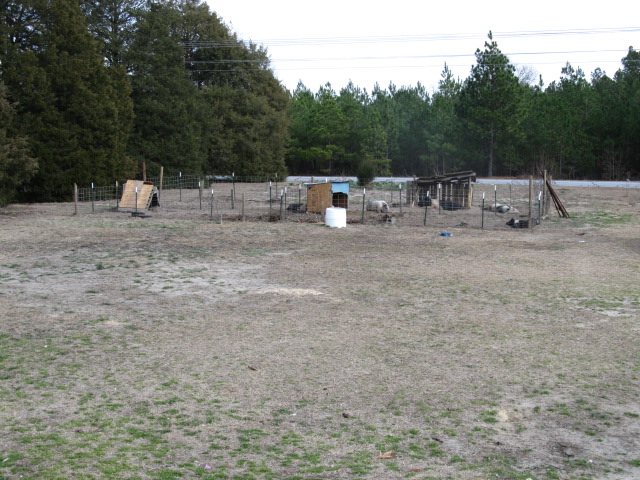Bethune, S.C. — I am told there used to be a small dairy farm of less than 50 cows just a quarter-mile down the road from where we stay. If you talk to any locals over 50, they all remember picking cotton in their teenage years for a farmer in the area. Their eyes glaze over with nostalgia when they speak of the seasonal hog slaughters they experienced at their fathers’ or grandfathers’ farms.
But things are not the same anymore. This small town on Route 1, which stretches from Maine to Florida, was economically devastated when Interstate 95 opened in the 1960’s. The former truck stop is run down and barely houses a thrift shop. The motel has been boarded up for years. No vacationers from the Northeast venture through our little town. Storefronts are empty. The population has declined, from 640 in 1950 to less than 400 souls today. Our town is barely able to support an elementary school, and the middle and high school closed more than a decade ago, with the children being bussed to a regional school.
The small farms here have fared no better. The textile industry left for foreign shores, making it harder for small cotton farmers to turn a profit. Economies of scale championed by Capitalism and Big Agriculture helped kill the family farm. A dwindling local population, with the “encouragement” of government policies of the last 30 years, led small dairies to close. Farmland now stands abandoned and overgrown in many places, or sports pine tree stands.
Yet, some farming still goes on. For example, our neighbor farms a few hundred acres, growing produce for a locally owned grocery store and a farmers market some 30 miles away. Soy beans and corn are grown for a large grain supplier.
There are folks here and there who try to straddle rural living, raising a few chickens or guineas, and maybe an occasional hog, plus keeping a small garden, while working 30 or more miles down the road.
My 94 year-old neighbor laments the loss of small farms. He reminisces that growing up, “We never had much cash, but we always had plenty to eat.” He explains that the generations following his for the most part left the family farm because they desired cash to buy “things” which jobs in the city could provide. In his day, health and life insurance was provided by the land. If they needed money, they sold some land. If they had money, they bought some.
However, amid all this “bad news” a strong but struggling rural community remains.
On our meager two acres, we keep a couple sows, milk a Jersey cow, raise chickens, and (off and on) raise rabbits, ducks, guineas, and turkeys. We raise and process all of the meat we consume ourselves. We grow most of our own produce, as well as most of our dairy. This past year we leased four nearby acres to grow peanuts for hog feed and peanut hay for the cows. We plowed with a horse, then planted, cultivated and harvested by hand. But we too are among the straddlers: I scrape out some income with consulting work along, with farm income from pigs and the occasional sale of other livestock.
We came here eight years ago with no farming experience, carrying merely books to inform us. But we jumped right in with our share of both success and humorous follies — and the community has been with us all the way.
One farmer has employed my teenage sons, teaching them how to plant, cultivate, and harvest — and simply how to work. The same farmer allows us to go through his fields at the end of a harvest to glean unharvested crops for our livestock.
A local contractor drops off his lumber scraps at the end of a job so we can have material for livestock housing. Others, most of whom we have never met before, stop by with surplus hay and straw, chickens, or other things to contribute to our efforts.
It is pretty amazing that this rural community in the deep South has welcomed and so energetically assisted this initially hapless Yankee family who has come into their midst. Perhaps it is because we bring back memories as my sons plow the field with their horse; or because we stack the peanut harvest in our front yard in a way not seen in these parts for years; or because we slaughter and butcher our own hogs; or because we hand-milk our Jerseys. Most of all, I think the determining factor is our children, who work so hard but are joyful and enthusiastic about everything old, but new to them.
It may seem that I have sung praises here about who we are and what we do, but I do so humbly. I think the rural community here sees the best of the past, while having a new hope for the future.
— James Curley
FPR is looking for portraits of life in your communities, no matter how plain or quotidian. Want to share one? Just e-mail a photograph of the view from – not of – your front porch to frontporchviews@gmail.com, together with a written reflection of no more than a few hundred words. Writing may be lightly edited. We’ll gladly withhold your name if you ask us to.

I think it’s truly great when a “View from My Porch” entry is largely about “the good people among whom I live.”
Comments are closed.